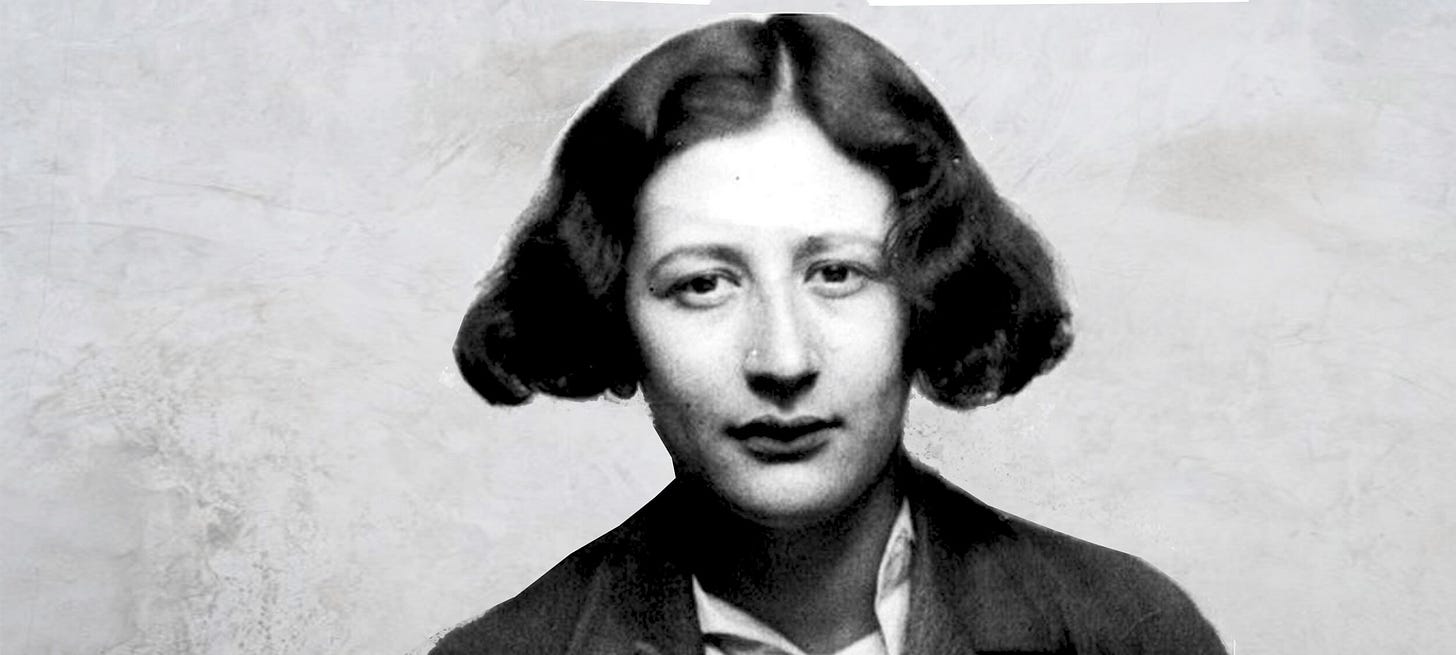Here, some quotes from and brief comments on Simone Weil’s short piece on friendship, affliction (or obsession in love), and the divine. Emphases are mine.
As is with Platonism, ‘Necessity’ is used in these quotes as an absolute, global and carnal form of bond as opposed to a relative, partial and agential one, like the Good.
When a human being is in any degree necessary to us, we cannot desire his good unless we cease to desire our own. Where there is necessity there is constraint and domination. We are in the power of that of which we stand in need, unless we possess it.
Necessity is a fact of Nature, or perhaps it is the fact of Nature. Weil conceives friendship as a divine miracle that allows us to live the Good amidst Nature—although it goes well beyond that:
When a human being is attached to another by a bond of affection which contains any degree of necessity, it is impossible that he should wish autonomy to be preserved both in himself and in the other… It is, however, made possible by the miraculous intervention of the supernatural. This miracle is friendship.
Friendship reconciles necessity and liberty (the ‘two opposites God combined when he created the world and men’), because
…each wishes to preserve the faculty of free consent both in himself and in the other.
In other words,
The two friends have fully consented to be two and not one, they respect the distance which the fact of being two distinct creatures places between them. Man has the right to desire direct union with God alone.
And here she gets to the heart of the issue:
Friendship is a miracle by which a person consents to view from a certain distance, and without coming any nearer, the very being who is necessary to him as food.
It is through friendship we conceive of communism. Friendship
…has in it, at the same time as affection, something not unlike a complete indifference. Although it is a bond between two people it is in a sense impersonal. It leaves impartiality intact…Friendship has something universal about it. It consists of loving a human being as we should like to be able to love each soul in particular of all those who go to make up the human race.
A philosophy of dignity:
The consent to preserve an autonomy within ourselves and in others is essentially of a universal order. As soon as we wish for this autonomy to be respected in more than just one single being we desire it for everyone, for we cease to arrange the order of the world in a circle whose center is here below. We transport the center of the circle beyond the heavens.
And finally:
Christ perhaps wished to suggest this with reference to Christian friendship when he said: ‘Where there are to or three gathered together in my name there am I in the midst of them.’ Pure friendship is an image of the original and perfect friendship that belongs to the Trinity and is the very essence of God. It is impossible for two human beings to be one while scrupulously respecting the distance that separates them, unless God is present in each of them. The point at which parallels meet is infinity.
The condition for a social bond that is not based on domination or exploitation is a restraint that preserves separation in unity and crowns generative difference. God is not a third term or a mediation—it is the belier of the apparent contradiction between the realm of necessity, of impurity, of domination and the realm of autonomy, the individual, and the self. It reveals the intimate connection between both, He is the differential principle. The point at which parallels meet is infinity—perfect friendship is not a veneration of the individual. It is the condition for a true impersonality, a true anonymity in love.




